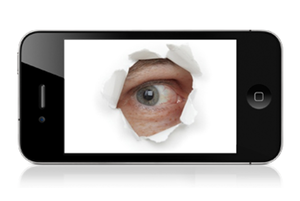Tracking you has come to your retail stores..
 Sunday, November 24, 2013 at 11:41PM
Sunday, November 24, 2013 at 11:41PM
You may have little control over the fact that some stores may be tracking you as you walk through the store. No, not by the security cameras, but by your own phone. The tracking is possible because of the MAC (Media Access Control) address that all Wi-Fi or Bluetooth-enabled devices have—a unique, 12-digit code to help routers send data to the right recipient. When a Wi-Fi card is on, looking for networks to join, it is detectable by local routers, such as those in a retail establishment. Through that, the company can learn how long people stand in line at a cash register, what aisles they visit and for how long, what promotions are more effective, who visits their stores more than once, what spot in the store draws the most people and much more. This information is logged and uploaded to third-party companies that conduct data analytics. According to Jules Polonetsky, executive director of the Washington, D.C.-based think tank Future of Privacy Forum (FPF), nine firms have most of the market for analyzing tracking data, but there are 40 or more in the field. The obvious goal of all this is, on its face, rather benign. "They want to sell you stuff," Rambam said. But privacy advocates say it can and does go well beyond that. "This tracking is happening generally without people knowing, and it doesn't even leave cookies or make connections that you can monitor," said Parker Higgins, an activist with the Electronic Frontier Foundation (EFF). "It also ignores that different norms govern what's reasonable in different environments. Your doctor can ask questions that would seem much more invasive asked by your mechanic," he added. They also contend it is not as benign as simply providing consumers with more relevant ads. "Threats to our privacy aren't isolated—they work together," Higgins said. "A tracking device that catches you walking regularly past the door of a store next to a medical clinic may reveal a lot more than intended."
Reader Comments